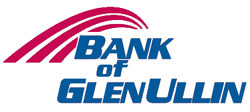Higher capital levels vs stricter regulations - Greenspan article
------------------------------
Andrew Trainor
Regional President & CEO
Legacy Bank
------------------------------
-------------------------------------------
Original Message:
Sent: 10-25-2018 12:39
From: Jolene Muscha
Subject: Higher capital levels vs stricter regulations - Greenspan article
When I read these articles, I am always surprised at the "one size fits all" attitude. I examined banks as an FDIC examiner for eight years before I began my career as a banker and our approach was always risk based. To institute a broad based rule of 25 percent capital minimum is to penalize the well run community banks and restrict their operations. I know from experience that most community banks have loan portfolios full of long standing customers with good payment histories and loans secured by real estate valued conservatively. Small banks have the luxury of knowing all their customers on a first name basis and we use that firsthand knowledge to recognize loan issues early and reserve for them appropriately. So in economic downturns, we hold a higher capital account through the ALLL. Main street community banks did not contribute to the 2008 recession; however, we did suffer from the fallout of the Dodd Frank act. My hope is that the decisions makers take into consideration that not all banks are alike and "one size does not fit all".
Jolene A Muscha
President
Bank of Glen Ullin
Glen Ullin, ND 58631
701-348-3613

The information transmitted in this email and any attachments is intended only for the personal and confidential use of the intended recipients. This message may be or may contain privileged and confidential communications. If you as the reader are not the intended recipient, you are hereby notified that you have received this communication in error and that any retention, review, use, dissemination, distribution or copying of this communication or the information contained is strictly prohibited. If you have received this communication in error, please notify the sender immediately and delete the original message from your system.

